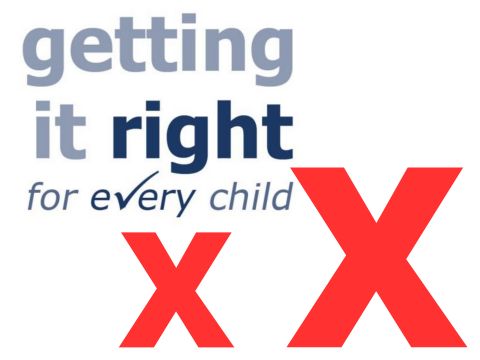

Approaching the turn of the millennium, James Heartfield wrote an article for LM magazine called, Why are children’s rights wrong? In it, he noted the contradiction of talking about ‘rights’ in the context of children. His warning about the potential dangers of this approach have never been more important.
I read this article at the time of publication but had forgotten, as Heartfield noted, that it was none other than Hillary Clinton, now infamous for calling Trump supporters a ‘basket of deplorables’, who had promoted the idea of children’s rights in an essay written in 1974 called Children’s Rights: a legal perspective.


Clinton’s logic that society should start from the assumption that children are legally competent had a progressive ring to it, but as Heartfield notes, it was the same argument being made by the Paedophile Information Exchange. Clinton clearly had no intention of going down this road, but the logical question remained: If we accept a child’s competence before the law, why not in sexual relations as well?
As well as this potential confusion between adulthood and childhood, helped by the idea of children’s rights, Heartfield had one eye on the way that this approach risked handing authority not to children, who lack the maturity to exercise it, but to so-called ‘experts’ and professionals who feel they know better than parents what children need.
Interestingly, at that time, Heartfield noted without hesitation that it was obvious that children do not have the right to watch what they want on television. Perhaps unsurprisingly, even here in Scotland at least, we have had questions raised about this. During the Scottish government’s promotion of its Named Person scheme, leaflets incorporating the children’s rights approach explained that respecting your child means that ‘your child gets a say in things like how their room is decorated and what to watch on TV’. Following this logic, limiting what your child watches on television could be a ‘wellbeing concern’ that needs to be recorded and shared by right-thinking experts!
Perhaps most importantly of all, Heartfield noted that through the process of defining children’s rights as rights that are protected by the state, the very idea of individual rights was being degraded, thus moving the idea of rights away from an understanding of individual freedoms to new forms of rights as protections. If these are the sorts of ‘rights’ that the rest of us should expect, he noted, ‘then we had better get used to being treated like children’.
The Children Act helped to develop the framework for the state to act as super nanny, and depending on how the wind is blowing in the world of politics, Heartfield noted that this could lead, as it had done in America, to a lesbian mother losing custody of her child by denying the ‘right’ to a ‘normal’ upbringing.
Today the wind is blowing in a different direction, and the Scottish state is considering whether or not to create a ‘conversion therapy’ law that would make it illegal for the same lesbian parent to deny her child’s ‘right’ to determine his or her ‘gender’ identity.
Consideration of a child’s welfare, Heartfield observes, ‘often becomes a means to pass judgement on an adult’s lifestyle’, where the parent, ‘soon finds that his or her private life is the concern of the child-obsessed courts or social services’. Thus, children’s rights act as a convenient fiction for the authorities, who have a blank page on which they ‘can write down whatever prescription they deem appropriate’.
The Children Act and the invention of children’s rights is a classic of its time, where a progressive, caring and liberal-sounding initiative emerges that disguises the authority’s domination through the language of liberation.
Today, we find that the blank page of ‘liberation’ has resulted in new elites’ promotion of ‘gender’ identity. In Only Adults? Good Practices in Legal Gender Recognition for Youth, we find a front cover with an image stating ‘Trans rights are human rights’. In this document, the UN Committee on the Rights of the Child is used to note that ‘the child’s best interest requires recognition of a separate legal personality, as well as the right for one’s separate viewpoint to be heard’ (p. 13). Consequently, the instruction is given for states to ‘take action against parents who are obstructing the free development of a young trans person’s identity in refusing to give parental authorization when required’ (p. 14).
With a growing number of confused children being encouraged, both online and by our education authorities, to embrace the idea that sex is fluid, our new ‘experts’ are there at hand with their children’s rights handbook, emboldened to determine what is best for all children in Scotland.
Elsewhere, we find the confusion of adulthood and childhood being played out in primary schools, with sexuality education understood within the context of rights and identity. And we find the new Scottish Human Rights Bill, now under consultation, talking about the ‘right to a healthy environment’ and the ‘right’ to live free of racism. Both sound progressive and liberating while incorporating a level of contempt for the ‘prejudice taught to us by the older generations’ (p. 25).
Through all this, the language of children’s rights comes to mean the authority of the elites to increasingly determine what is right and wrong for our children. In the process, parents and grandparents – the very people who look after and love children – are cast aside, often labelled as the equivalent of Clinton’s ‘deplorables’.
Rights, properly understood, are freedoms that only adults can exercise, free from the state, not freed by it. They provide a liberal and truly progressive framework for all of us to speak our minds and to raise our children in accordance with our own beliefs and values. They allow us to associate with whomever we wish, to set up groups of like-minded individuals who can make themselves heard over the confused din of ‘expert’-enforced ‘rights’.
Stuart Waiton, Chairperson of the Scottish Union for Education
This article was first published by Scottish Union for Education
